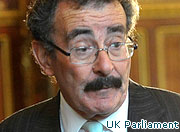Leading scientists have accused the Government of misleading the public over plans to allow three-parent babies.
The group, which includes leading fertility expert Professor Lord Robert Winston, has criticised the Department of Health for redefining “genetic modification” to exclude the controversial move.
The techniques involved would result in babies inheriting genetic material from three parents.
Wrong
Lord Winston told The Independent: “Of course mitochondrial transfer is genetic modification and this modification is handed down the generations. It is totally wrong to compare it with a blood transfusion”.
Dr David King from the pressure group Human Genetics Alert also criticised the move by accusing the Government of “playing PR games based on very dubious science”.
A number of scientists, activists and politicians have previously spoken out about the dangers of the techniques.
Grave risks
Professor of bioethics Calum MacKellar said allowing the procedures “would create a very serious precedent, resulting in grave risks for the future”.
Friends of the Earth’s Head of Policy, Research and Science has said: “We believe inheritable changes to the human genetic makeup are a dangerous step that should be prohibited.”
Jacob Rees-Mogg, MP for North East Somerset expressed his opposition saying: “In a country nervous about genetically modified crops we are making the foolhardy move to genetically modified babies.”
Inconclusive
In February, an advisory panel to the US regulator, the Food and Drug Administration (FDA), examined the techniques.
The evidence from that research suggested that the “full spectrum of risks” was yet to be identified.
In the UK, the Human Fertilisation and Embryology Authority, which backs the plans, admits that “there are still experiments that need to be completed”.
Majority opposed
A recent consultation on the proposals to allow three-parent babies showed that 62 per cent of people are opposed.
Figures showed that of 1,857 responses, 1,152 opposed the idea of three-parent babies, while 700 “expressed general support”. The remainder did not come down on either side.

